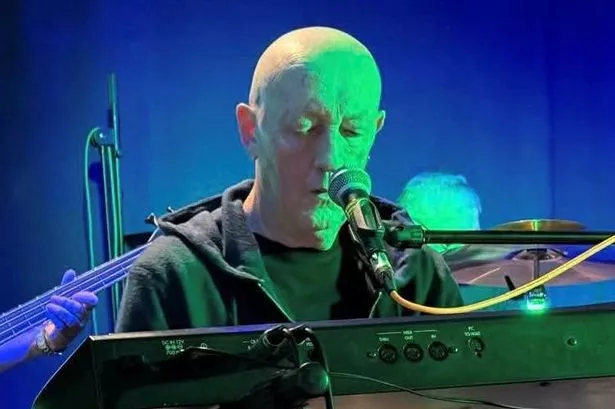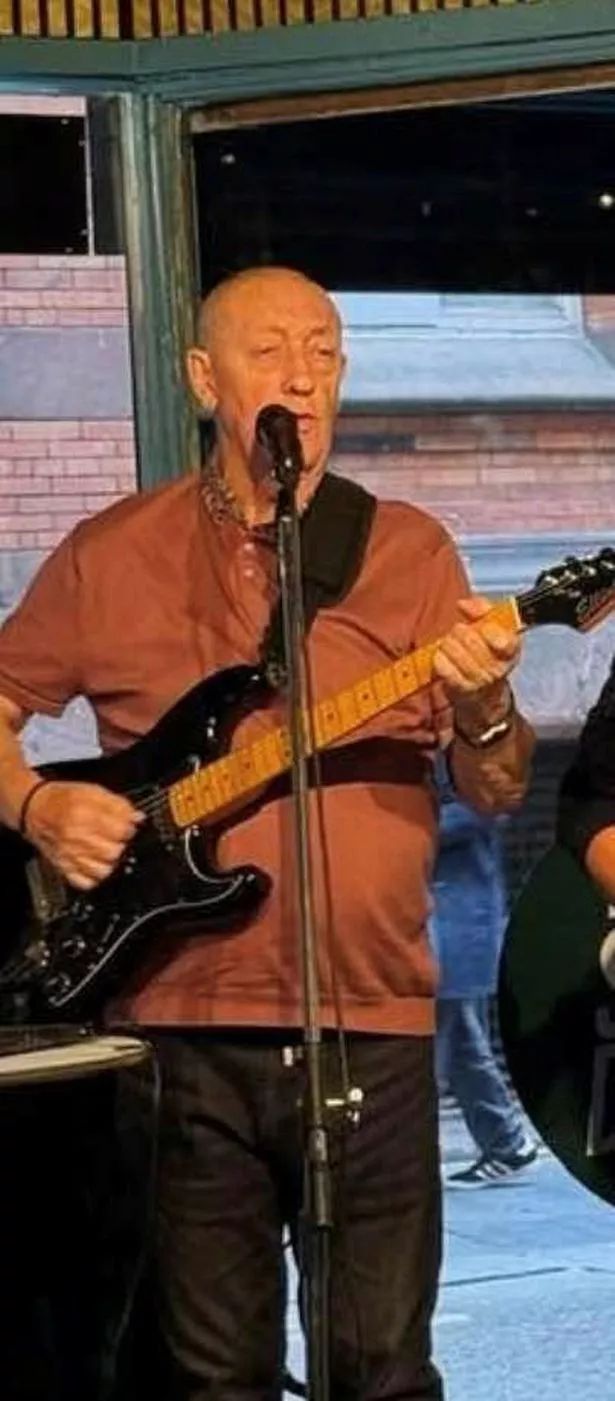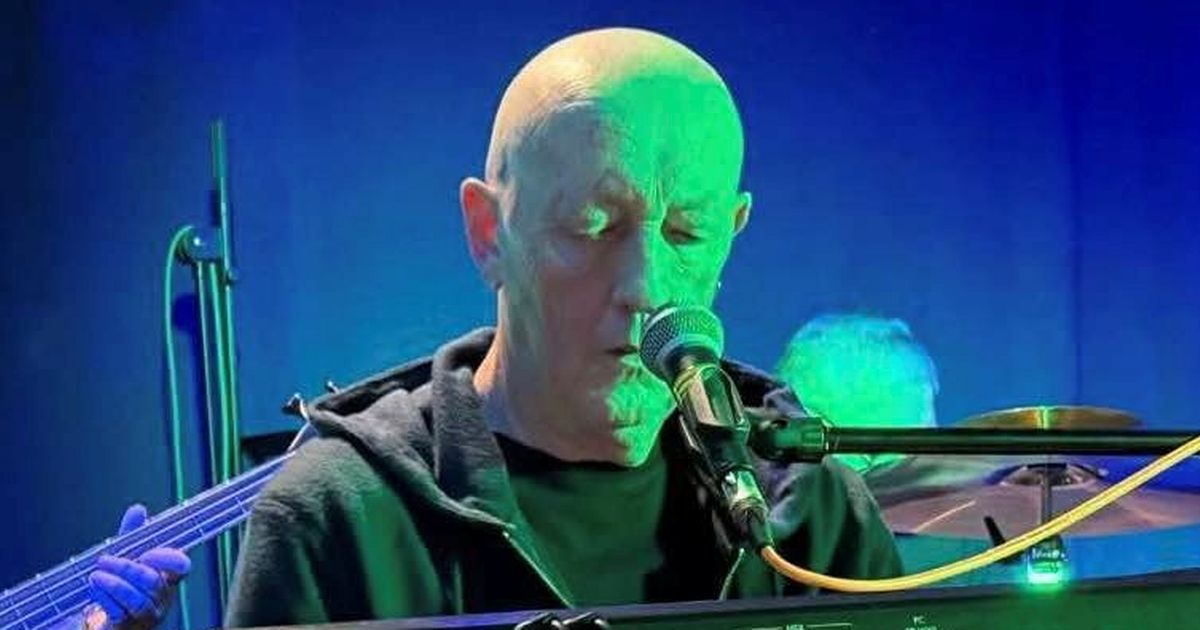Then he had to wait more than five years before he could have the surgery to deal with the deadly problem Rob Shaw is encouraging other men to get screened for AAA
Rob Shaw is encouraging other men to get screened for AAA
An entertainer discovered he had a deadly condition that could have ruptured his main artery after attending a routine screening.
Rob Shaw, 72, an entertainer from Liverpool, was diagnosed with a small abdominal aortic aneurysm (AAA) following routine screening at 65.
But it was only earlier this year the swelling in his aorta became large enough for surgery, meaning he had to sit tight and wait for more than five years before he and doctors could act.
AAA is a bulge in the aorta, which is the largest artery in the body.
If the AAA ruptures, it can be deadly, and around 82 per cent of people with an untreated AAA will die from it.
Join the Manchester Evening News WhatsApp group HERE
But the NHS offers a 10-minute, pain free scan of the abdomen (tummy) for all men in the year they turn 65, that can detect any swelling early, reduce the chances of rupture, and save lives.
Rob is urging others to take up the invite of the AAA screening when they’re invited at 65.
But the NHS offers a 10-minute, pain free scan of the abdomen (tummy) for all men in the year they turn 65, that can detect any swelling early, reduce the chances of rupture, and save lives.
Rob is urging others to take up the invite of the AAA screening when they’re invited at 65
He said: “My dad had AAA, and now me, so my son will be screened at 50 instead of 65. My consultant also recommended my sisters should be screened, as although it’s rarer that AAA affects women, it can do.”
Rob thinks it’s so important that people are aware of AAA screening and the dangers of undetected AAA. He said: “If you get the letter to go for the screening, get it done. For me, it was lifesaving.”
He said: “My dad had AAA, and now me, so my son will be screened at 50 instead of 65. My consultant also recommended my sisters should be screened, as although it’s rarer that AAA affects women, it can do.”
Rob thinks it’s so important that people are aware of AAA screening and the dangers of undetected AAA. He said: “If you get the letter to go for the screening, get it done. For me, it was lifesaving.”
 Rob Shaw is an entertainer from Liverpool
Rob Shaw is an entertainer from Liverpool
For five years, the team at Liverpool University Hospitals NHS FT monitored Rob, repeating the ultrasound annually until a couple of years ago when the scans became more frequent.
In February this year, Rob was told that it was time for the AAA to be fixed.
Rob said: “When I was waiting for the operation, I had a phone call from the consultant on 13 May saying there had been a cancellation, and the very next day I was admitted to have the surgery on 15 May.
“What’s more, when I was having the surgery they fixed my umbilical hernia at the same time – two birds, one stone!”
Just eight days later, Rob was well enough to go home where his wife Sue could look after him, and just a few weeks later he was driving and gigging again.
The latest data on the AAA screening programme shows that it is one of the best performing screening programmes delivered in the North West by the NHS, with an average coverage rate across region of 79.8 per cent.
The stats also reveal that coverage for individuals living in the most deprived areas, of which there are a much greater proportion in the north west, has risen almost 30 per cent nationally from 2021/22 to 2024/25.
This reflects the hard work and determination of local services to boost attendance among populations who may face additional barriers and are at higher risk of AAA.
The AAA screening test usually takes place in a GP practice or a health centre, but sometimes can be in hospital, and all men registered with a GP will be invited for screening in their 65th year.
Head of Public Health for NHS England in the North West, Tricia Spedding said: “While it’s brilliant that over the last few years, the number of men coming forward for screening has grown, it’s really important that we keep on raising awareness of AAA screening.
“Of all the screening programmes the NHS offers, AAA screening is the least well known, and yet the risk of an undetected and untreated AAA is one of the most deadly.
“The scan is completely painless, and if there is no aneurysm detected, you don’t need to have any more scans and if we do detect an aneurysm, as with Rob’s case, it can be treated early and monitored.
“Please, if the NHS invites you for AAA screening, don’t ignore the invite, 10 minutes could save your life.”
It is estimated AAA rupture occurs in about 1 in 10,000 people annually, primarily affecting men over 65-years-old with risk factors like smoking, high blood pressure, and a family history of aneurysms.
If the NHS has invited you for your AAA screening but missed your appointment, you can still contact your GP practice to arrange one.
Find out more: Abdominal aortic aneurysm (AAA) screening – NHS

